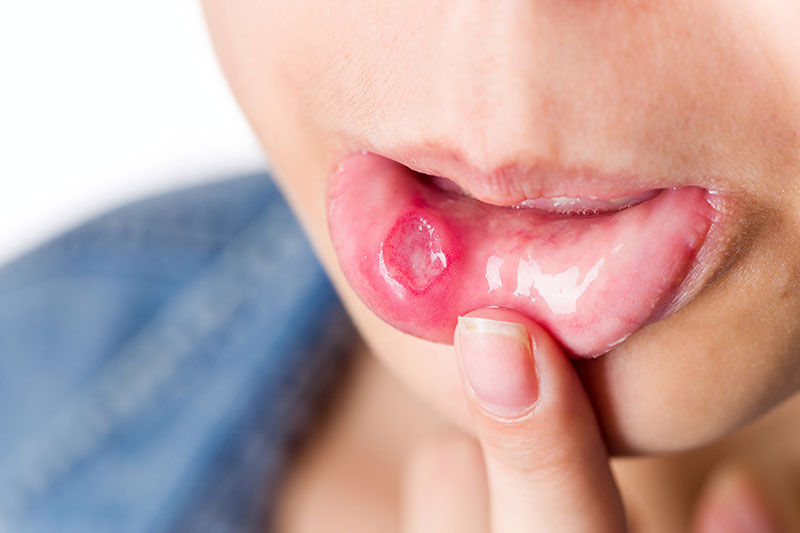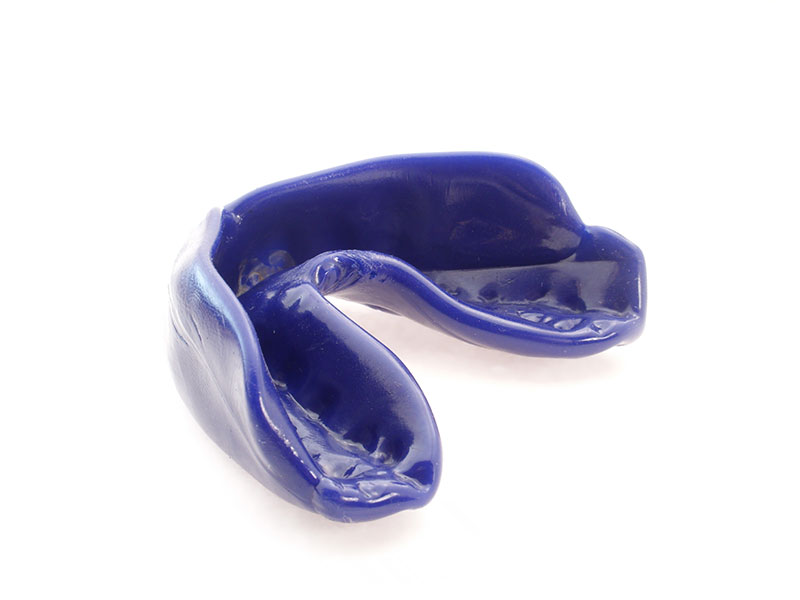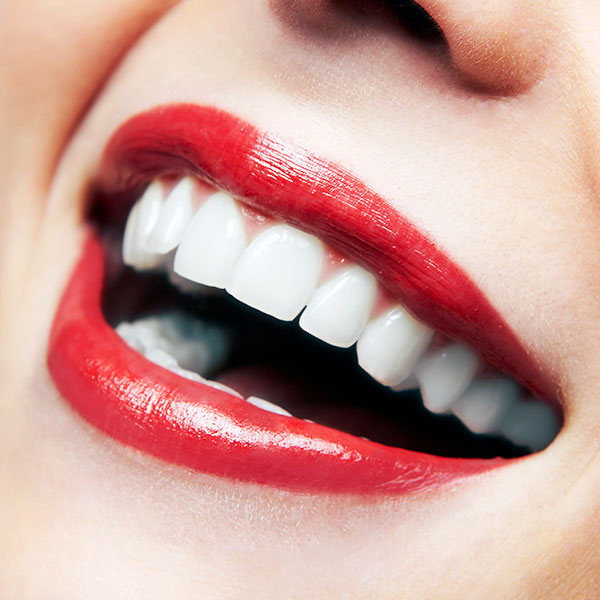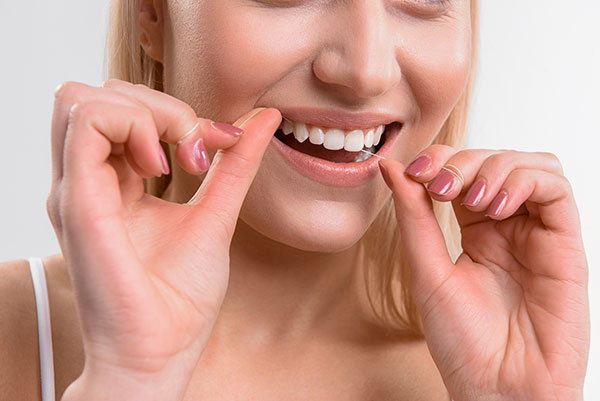
by Dr. Charles Triassi | Sep 2, 2020 | Dental
A night guard is exactly that, a guard worn at night. It is a somewhat flexible tray that sits over your teeth. The goal of a night guard is to act as a cushion to protect the teeth and the jaw from wear occurring from nocturnal habits such as grinding and clenching. Teeth grinding is when the top and bottom teeth rub together. Teeth clenching is when the jaws press the teeth together, like a firm constant bite. Both habits are subconscious and are a form of a sleep motion disorder, and both are very common.
How Does a Night Guard Help?
When worn properly and frequently, a night guard helps to prevent wear on the tooth’s biting surfaces. The night guard absorbs the strong biting or clenching forces from the jaws and acts as a cushion to absorb these forces. Additionally, when wearing a night guard, the biting and clenching forces are evenly distributed throughout the jaw and teeth. There are several different models of night guards to choose from depending on your needs and what will work best for you. Some are thinner, some are thicker, some can be worn on the top teeth, some can be worn on the bottom teeth.
Important Tips
- Wear your night guard every night for the best protection
- It is difficult to adjust when first wearing a night guard, so give it a few weeks until you get comfortable wearing one
- Inspect the night guard periodically for damage. It may need replacement if there is excessive damage
- Clean your night guard daily with a toothbrush and warm water. Avoid hot water because it may warp the plastic
- You night guard should fit snugly on your teeth. Let your dentist know if the fit feels loose.
If you think that you are clenching or grinding your teeth and you think that you would benefit from a night guard, we encourage you to contact us today to schedule an appointment.

by Dr. Charles Triassi | Jul 3, 2020 | Dental
“Canker sore” is the layman’s term for an aphthous ulcer. They typically appear as small, flat, white or off-white lesions on the soft tissues of the mouth such as the inner lips, the base of the gums, under the tongue and on the cheeks. They do not appear on any keratinized tissues, such as that of the top of the tongue. Canker sores differ from cold sores in that they do not appear on the lips, and they are not contagious.
What Causes Canker Sores?
There is not always an easy answer to this question. Some people are more prone to canker sores than others, and some people rarely get them. A combination of factors may cause an outbreak. Possible causes may include:
- Emotional or physical stress
- Lack of sleep or fatigue
- Sensitivity to certain foods such as acidic fruits and vegetables (tomato, lemons)
- Minor trauma from an injury or dental work
- Tongue or cheek biting
- Low vitamin b12 levels
- Use of toothpaste or mouthwash that contains sodium lauryl sulphate
- Certain oral bacteria
- Certain medical conditions such as celiac disease, inflammatory bowel diseases such as Crohn’s or ulcerative colitis, Behcet’s Disease and HIV/AIDS
Risk Factors For Canker Sores
Canker sores most commonly affect young adults and youth and are more common in females than in males. In addition, there is also a family link for canker sores, whether this is from a genetic predisposition or from environmental factors such as a similar diet or allergens.
How to Prevent Canker Sores
Canker sores are sometimes inevitable, but there are ways to reduce the frequency and severity of them.
- Avoiding foods that are known irritants (such as spicy, acidic and tart foods)
- Take a vitamin b12 supplement if you have a diet low in vitamin b12
- Reduce your stress
- Protect your mouth from irritants and injuries
- Find a toothpaste and mouthwash that works for you
- Maintain good oral hygiene
Treatment of Canker Sores
The most important factor is time. Canker sores will usually go away on their own in a week or less. If the canker sore is particularly large, it may take several weeks. Some ways to help speed up the healing or relief the symptoms are:
- Off the shelf oral or topical medications for pain relief
- Dab magnesium hydroxide (milk of magnesium) on the sore several times a day
- Rinsing with salt water morning and evening
- Apply ice to the area by sucking on ice chips
If you get frequent canker sores or have any questions about preventing canker sores, we encourage you to contact our office today to schedule an appointment.

by Dr. Charles Triassi | May 27, 2019 | Dental
It is vital to wear a sports guard anytime you are participating in contact sports. This means if you are participating in a sport where your mouth could contact another person or object, such as hockey, football and basketball. Sports guards are thin, pliable pieces of plastic formed to your teeth to protect your teeth and jaw from injury related to sports. Injuries to the mouth are the most common facial injury in sports.
Types of Sports Guards
Boil and Bite – A boil and bite sports guard can be purchased at a store for less than a custom fitted sports guard. Once purchased, the material is heated up, and the wearer will bite into the material, leaving an impression of their teeth. The boil and bite sports guard offers protection for the teeth and jaw, but it lacks the protection offered by a custom-made sports guard. Boil and bite sports guards are recommended for children who are growing and losing teeth, as the investment for a custom mouth guard would only last a few months before it no longer fits. Between the ages of 13 to 16, when growth slows, and all adult teeth are in, it is recommended to switch from a boil and bite to a custom-made sports guard.
Custom Made – This type of sports guard is made in a dental office and fits precisely to the wearer’s mouth with a tight seal. An impression of the teeth is taken, and an exact model is made out of a piece of flexible plastic. A custom sports guard has a tight seal and offers the best protection against force and trauma.

How to Care for your Sports Guard
Clean the sports guard after each use with a separate toothbrush and some warm water. Never use hot or boiling water on the guard as it may deform the shape. Never bite or chew on your sports guard. If the sports guard is no longer fitting as it did at the start, or if there are signs of chips and wear, it is time to replace the guard. An ill-fitting sports guard offers substantially less protection than a well-fitting sports guard.
If you believe you may benefit from a custom sports guard, or have any questions about them, we encourage you to contact us today to schedule an appointment.

by Dr. Charles Triassi | Jun 27, 2018 | Dental
We all love having that fresh mouth feeling after leaving the dental office. Why not keep that fresh mouth feel between your dental visits? Follow these tips to keep your smile healthy until your next dental visit.
Floss Regularly

Regular flossing keeps your gums healthy and firm. Without adequate flossing, inflammation and gum disease occurs. Gums that are swollen, red, swollen and bleed easily when brushing and flossing are signs of gum disease. Many patients experience some bleeding during teeth cleaning if they do not floss enough or properly. Flossing and brushing at least once daily reduces the chances of gum disease. While it is recommended to floss after every meal, it is not always possible. However, flossing before sleeping is most beneficial if you can only floss once a day.
Use The Proper Brushing Technique

Brushing is only effective when the right technique is used. The rolling stroke brushing technique is easy to follow. Ask your dental professional to show you how to use the rolling stroke technique.
The technique differs when using an electric toothbrush. Your goal is to guide the electric toothbrush along the gumline since the brush is performing the brushing action. Be sure to apply pressure that is not too light or heavy.
Brushing for at least two minutes is recommended. However, you may need to brush longer depending on the health of your mouth.
Avoid Tooth-Staining Foods
During your teeth cleaning, some external stains from teeth are being removed. Avoid foods that easily stain teeth to reduce the frequency of dental cleanings needed. Foods that stain include coffee, tea, red wine, etc. Rinsing your mouth after having these foods. Habits such as smoking require more frequent cleanings as well.
Use Special Cleaning Tools
A regular flossing and brushing oral care routine works for most patients. However, sometimes special cleaning aids must be used for better reach or access. Your dental professional will recommend cleaning aids suited for your oral health.
Keep these tips in mind when it comes to your oral care routine for a healthy mouth between dental visits. Contact us to schedule your dental visit if it has been a while.

by Dr. Charles Triassi | Mar 15, 2018 | Dental
Dental Anxiety
Dental fear or anxiety affects many people. For some, it can stop them from getting the oral care that they need. Dental professionals see patients on a daily basis that have varying degrees of dental anxiety. You do not have to worry about being “a bad patient” or feel guilty or ashamed. Getting through the door is often the hardest part, and your dental professional recognizes that. Dental staff will work with you to ensure your comfort every step of the way.
Some tips to help you get through a dental appointment:
Find the right dentist
There are gentle and understanding dentists that are willing to help you face your fears and get the dental treatment you need and deserve.
Talk about it
Be open and upfront about your dental anxieties. Knowing what your fears are and what they stem from can help the dental staff make sure you have a positive experience. For some, it helps to have procedures explained to them, so they know what is happening during each step. Good communication will your dental professional is important.

Headphones
If the noises involved in dentistry increase your anxiety, bringing along your music or a podcast can help distract you.
Relaxation techniques
Knowing some easy relaxation techniques like controlled breathing can be helpful.
Take breaks if needed
If you need a break, it is okay to ask for one. If you need multiple dental procedures done, breaking them up into short, more manageable appointments may help you get through the treatment plan.
Pain control
If you have a fear of dental pain, it is important to know that there are different options for pain control. Even for a dental cleaning, there are options to keep you comfortable and pain-free. Talk to your dental professionals to discuss what might work best for you.

Sedation
Some people need sedation to assist them in getting through dental procedures. Talk to your dentist about options if you think this is something that would help you.
Practice excellent oral hygiene
Thorough brushing twice a day and daily flossing help to prevent cavities and keep your gums healthy. Choose healthy tooth-friendly foods and forgo the pop and candy. This will mean shorter and less complicated dental cleanings and hopefully prevent you from needing major dental work in the future.
Dental professionals know that your fears are real and will strive to be understanding and help you work through them. Just because you have dental anxiety today does not mean that you always will. Once you have some positive experiences at the dental office, your confidence and comfort level will grow. If your anxieties stem from a bad dental experience that happened a long time ago, know that dentistry has changed a great deal over the years and patient comfort is now of the utmost importance. If you are in need of dental care, call today!










